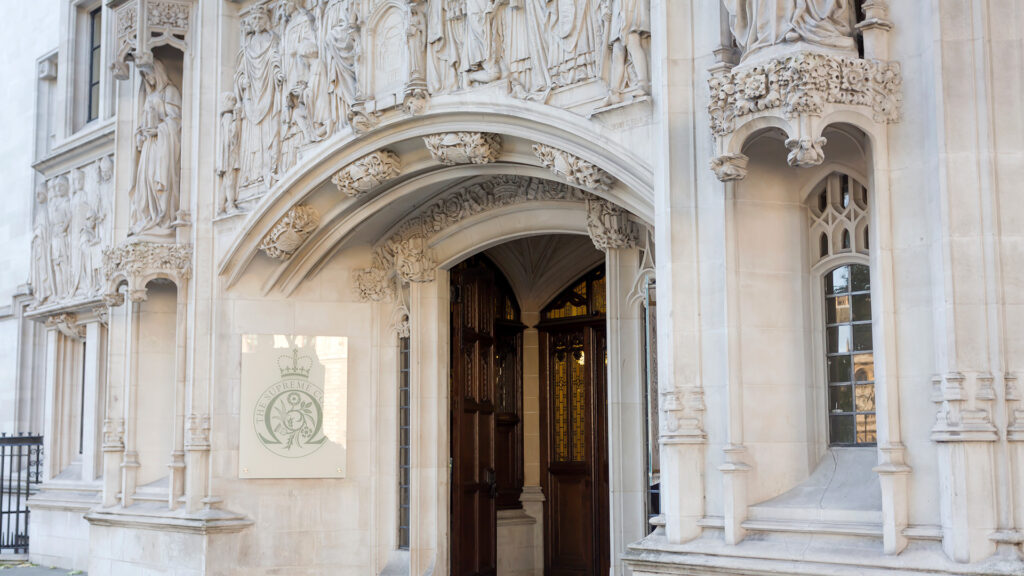
New UAE Federal Law on pledges of property and moveables, February 2017
In December 2016, Federal Law No. 20 of 2016 on the pledge of moveables as security for debts was issued and is stated to come into force 90 days from the date of publication. This is expected to fall on or around 12 March 2017 (the New Pledge Law).
Unlike the new UAE Bankruptcy Law and the new UAE Companies Commercial Law which was long awaited and widely expected amongst industry practitioners, the New Pledge Law received very little publicity in the UAE legal community leading up to its publication at the end of last year, which is surprising as it has the potential to fundamentally change the way security is taken by banks and financial institutions in the UAE.
The introduction of the New Pledge Law is an explicit move to bring more certainty to secured financing transactions in the UAE and seeks to remove some of the uncertainties surrounding the creation and enforcement of taking security over moveable property from intangible property such as credit balances in bank accounts, to tangible property, such as oil and product stocks in storage tanks located in the UAE. The principal aim of the New Pledge Law is to expand the use of pledges of movable property in financing and give all businesses easier access to financing. The changes under the new law are expected to prove beneficial particularly for small and medium sized enterprises whose corporate assets consist mostly of movable property. Under the New Pledge Law, pledges over moveable property will be given more clarity with regard to applicability and transparency.
More importantly, through a new registration system, the New Pledge Law seeks to remove the risk of undeclared multiple pledges of the same commodity to different banks which shook up the commodity finance market in 2014 when base metals in Qingdao, China were being pledged through duplicate warehouse receipts multiple times as security for bank financing, affecting and resulting in ongoing litigation by a number of local and international banks.
The key points of the New Pledge Law are as follows:
Pledge of moveable property and assets: This includes current, future, tangible and intangible assets. The list includes:
- Credit balances in UAE licensed banks.
- Receivables from third parties.
- Raw and primary products and commodities (hard such as rubber, gold and oil and soft such as grains, corn, wheat and sugar).
- Equipment, machinery and work tools.
- Title documents where title can be transferred through delivery or endorsement.
- Any other moveable property where the relevant laws do not prohibit these assets to be secured.
Security register: A new security register will be set up to record the rights of the parties under the pledge. The date and time of recordation of the pledge in the register will be effective as against all parties and seeks to establish priority vis-a-vis competing creditors. Any third party may search the register to obtain a hard copy or electronic transcript of the register which sets out the basic information of the pledge or security interest registered. We expect that this will be an online electronic register.
It is interesting to note that under the New Pledge Law, other rights which are prevalent in aircraft and ship financing may be registered at the registry, such as the rights of a lessor under an operating or finance lease.
The practical effect of registration is that the pledgee bank will have priority over other creditors in the recovery of its rights in respect of the moveables pledged in its favour. Multiple pledges can be created over the same asset. The priority of creditors, in line with many other security registers, is decided based on the time and date of registration of the pledge.
At the date of this bulletin and following enquiries at the government department that has been charged with maintaining the register, there has been no news on:
- When the register will be set up.
- What the basic information in the transcript will contain (although we expect it to include details of the parties, the nature of the pledged goods and the date and time entry in the register).
Comingling and mixing of fungibles: The New Pledge Law provides that when similar goods are mixed, the pledge will remain effective if they are separable. In other words, if the oil which Party A deposits in a storage tank is similar oil to that owned by Party B and when mixed together the original separate oil cannot be distinguished in the mix (as opposed to a new product being created as the composition of oil is different (e.g. different grades of gas oil) and once commingled, forms an entirely new product) then the pledgee has an effective pledge of the specific percentage in respect of the original oil deposited by Party A. This is expected to materially improve commodity finance in the UAE.
No transfer of possession: The current procedure in the UAE is that establishing a pledge over an asset requires the pledgor (i.e. the asset’s owner) to transfer possession of the asset to the pledgee, which significantly limits the owner’s rights to deal with the asset. This has obvious implications and denies the pledgor any possibility to benefit from the pledged asset to amortize the underlying debt. The New Pledge Law eliminates this situation and allows for pledges of moveable property to be established without the need to transfer possession from the pledgor to the pledgee.
Future property may be pledged: The New Pledge Law expressly provides that future property may be secured. This is a very welcome development. The current position is that, in respect of bank account security, the credit balance should be fixed and identifiable, effectively meaning the borrower should maintain a blocked account. As most accounts are operating and have fluctuating balances, banks generally rely on set-off provisions in their account opening mandates or account pledge agreements. Due to the uncertainty, some foreign lenders also require offshore accounts where floating security is recognised and enforceable. The New Pledge Law should provide welcome comfort to banks when taking local law account pledges and should remove the need to enter into regular supplementary account balance confirmations which can be impractical.
Self-help remedies and enforcement: The New Pledge Law departs from the existing position of requiring a local court order permitting enforcement against the assets subject to a pledge and expressly provides that for the following categories, self-help remedies are available to the bank and the bank may enforce against the asset directly without the need for any judicial or court sanction:
- Bank accounts: if the account is held with the financing bank, set-off is expressly permitted. If the account is held with a third party account bank, the financing bank will be allowed to claim against the credit balances held with the third party account bank.
- Bonds or endorseable instruments: if the assets are bonds or written instruments capable of transferring ownership through delivery or endorsement, the enforcement may be carried out directly by delivery or actual endorsement if the value of the bonds or instruments have a value equal to the pledge.
For the other remaining categories, the bank may apply to court to seek a declaration of possession of the assets pledged in its favour and an execution order to enforce against the assets. Once the execution order is granted, the bank may prepare the assets for sale at its own expense (such expenses to be added to the overall secured debt). The bank will need to exercise efforts to sell the assets at market price (the UAE court may impose the minimum sale price) and set out the method of sale.
Commentary
The New Pledge Law is new in the market and many of the industry practitioners are coming to terms with the changes which the law will introduce. From our perspective the new changes can be viewed as a positive step towards encouraging lenders taking local law security in cross border financing transactions, such as in aviation and shipping and structured trade and commodity finance.
The New Pledge Law will come into force 90 days from the date of publication (expected to be mid-March 2017). In addition, further detail on the practical effect and operation of the New Pledge Law should be clarified by certain Executive Regulations. The Executive Regulations are due to be published within 6 months of the New Pledge Law coming into effect (i.e. mid-September 2017). We hope and expect that the pledge register will be established before the Executive Regulations are published.
As with all new laws, a number of initial questions arise on how it will operate in practice and clarification is expected for at least the following questions:
- When will the registry be established and what are the fees for security registration (will it depend on the amount being secured or will it be a fixed fee regardless of the amount secured?). Can the pledge agreement be executed electronically and whether this falls under legislation governing electronic signatures.
- Who has the ability to search the register? Will this be limited to existing parties to the underlying pledge or will this include other third parties. Free access by third parties will enhance the benefit of the register to put on notice to others the existence of a pledge and should avoid a repetition of the Qingdao metals fraud however, some of the commentary from traders who count on the proprietary nature of tradeflow are also worried about the quantity of their private stocks being revealed.
- How does the New Pledge Law interact with the existing structure in taking security over moveable property in the UAE (which is predominately governed by UAE Civil Code No. 5 of 1985 (Civil Code) and Federal Commercial Transactions Law No. 18 of 1993 (Commercial Code))? The existing procedure requires possession and clear identification of the moveable property to be delivered to the bank or to a storage agent which undertakes to hold the property to the order of the bank. In addition, supplemental addenda to refresh changes in stock would be used. This means that there is a certain administrative inconvenience during the security period and also prevents the owner of the goods from having free access to the product during the financing period. Following the introduction of the New Pledge Law, and on our reading, it suggests that the existing procedure requiring transfer of possession will exist in tandem with the New Pledge Law and it will be up to the parties to select which option they prefer to use. As with the introduction of any new legislation, we also think there will be a period for the market to adjust to the New Pledge Law and as such, the existing law provided under the Civil Code and the Commercial Code will be preferred for an interim period.
- How will the self-help remedies expressly set out for certain categories of assets be received by the UAE courts? Is there a risk for a secured creditor enforcing against a local bank account under the self-help provisions under the New Pledge Law, where such enforcement is being challenged by the borrower, that the local courts could take an active interest in proceedings and declare that a court judgement must be obtained in the usual manner?
- Will the New Pledge Law require a bank to be a UAE licensed bank (as opposed to an international bank without a UAE banking licence). There is currently a local content requirement when it comes to financing real estate and certain classes of asset financing require registration with UAE government departments. The New Pledge Law is silent on this and we wait to see whether in practice this is required before a pledge can be registered under the New Pledge Law. We hope and expect that the Executive Regulations will further clarify expressly that this is not required as to decide otherwise would have far reaching implications for international banks conducting commodity and trade finance in the UAE and would cast a shadow over the significant efforts of the authorities and practitioners to promote the UAE as a regional commodities trading hub.
In summary, the New Pledge Law is a step in the right direction as it seeks to clarify and perfect security interests over a wide class of moveable property in a transparent manner. It follows hot on the heels of the London Metals Exchange which last year introduced their own electronic warehouse receipts register partly in response to the 2014 Qingdao fraud.
As the practicalities and further guidance of the New Pledge Law materialise later on this year, we expect banks and their customers will welcome the legislative changes particularly on cross border financing transactions where security is granted by UAE companies.
We remind you that the Arabic text of the New Pledge Law is definitive. The various English translations which are available are not identical in every detail. Difficulty in interpreting the primary legislation is qualified by accuracy of translations.
For more information, please contact Tien Tai, Partner, Dubai, on +971 4 423 0578, or tien.tai@hfw.com, or your usual contact at HFW.
Download a PDF version of ‘New UAE Federal Law on pledges of property and moveables, February 2017’











